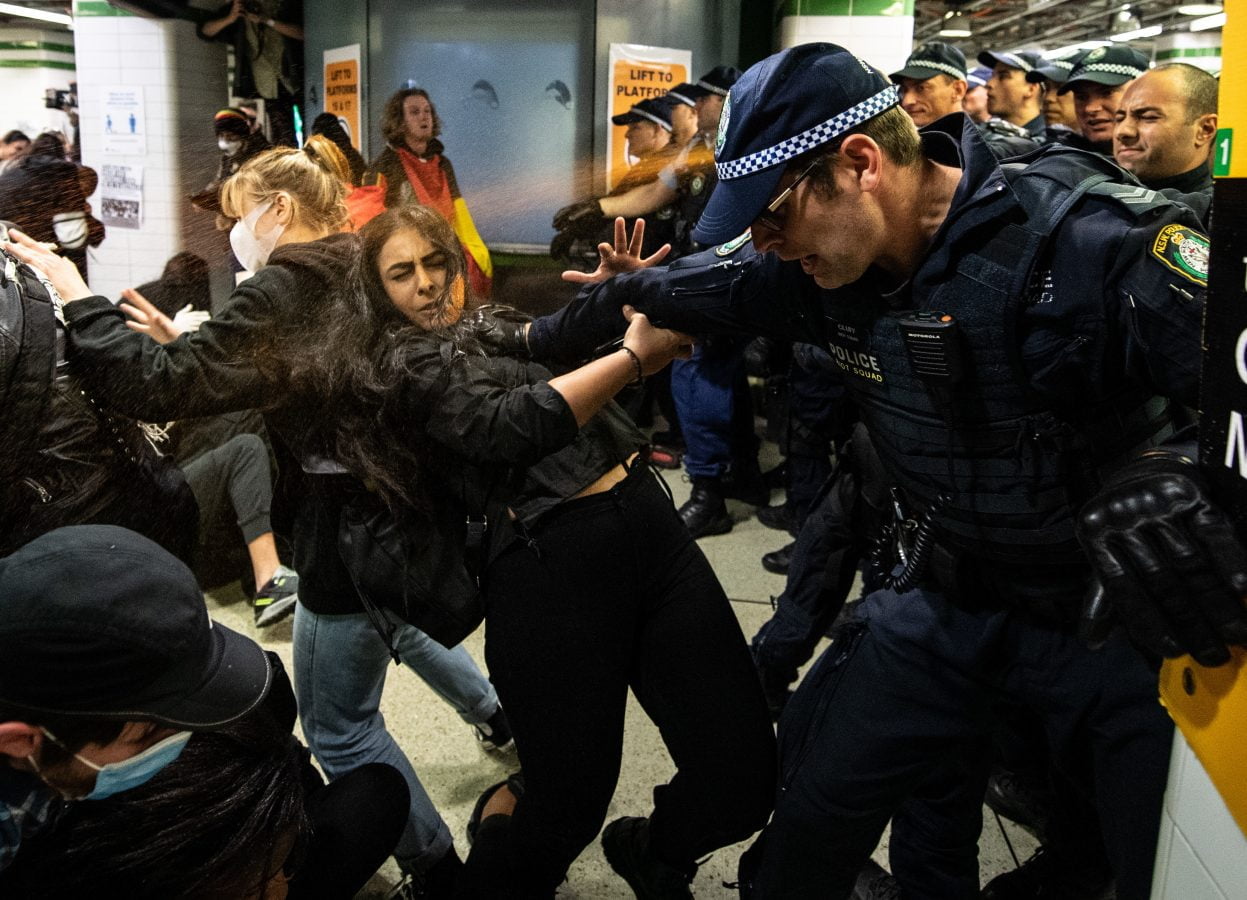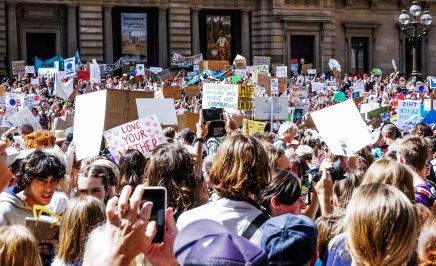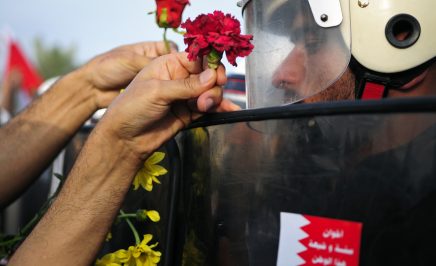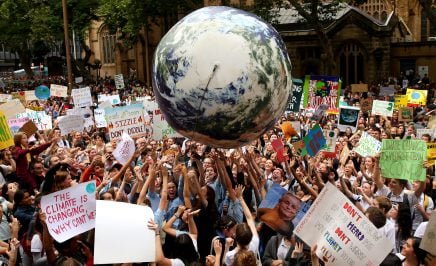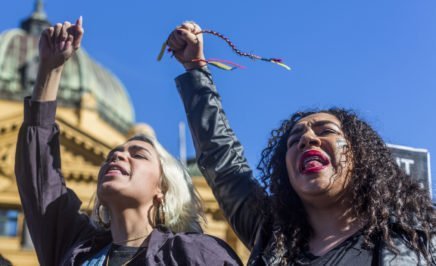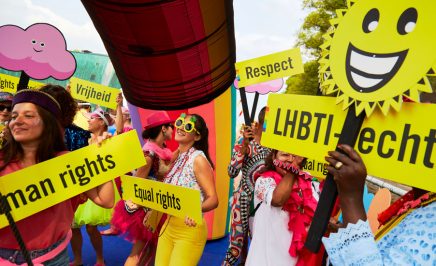Over the past twelve months, Amnesty International has highlighted how police around the world have used the COVID-19 pandemic as a cover to crack down on the right to protest.
Today, Amnesty International has released a briefing detailing how New South Wales police have used disproportionate and unnecessary force to police protests and enforce COVID-19 restrictions.
Amnesty International’s new briefing, COVID-19 Crackdown: The Policing of Protest in New South Wales During the COVID-19 Pandemic, outlines how the extension of powers under the Public Health Act 2010 has led to the undue restriction of peaceful protesters’ rights to freedom of expression and peaceful assembly.
COVID-19 crackdowns
In 2020, New South Wales police pepper sprayed peaceful protesters, chased protesters on horseback, and pushed them to the ground – injuring both protesters and bystanders
In less than 12 months, New South Wales police issued over $75,000 worth of fines, and arrested dozens simply for exercising their human rights.
During public health emergencies such as the COVID-19 pandemic, states have an obligation to protect our right to health. Under human rights law, governments can place restrictions on the rights to freedom of peaceful assembly and expression, so long as these restrictions protect public health.
However, the briefing reveals that New South Wale’s police’s conduct was too often not necessary to protect public health, nor was it proportionate to the threat of the COVID-19 pandemic in New South Wales.
While protesters at the University of Sydney were arrested and fined for gathering in groups over 20, other students were able to attend classes with over 30 other students.
Unfortunately, this punitive policing of protests has continued into 2021. Organisers of the 2021 Invasion Day march reported they felt pressured and intimidated by police to call off the march. Organisers told Amnesty International that the police “arked up” when it became clear that more than 500 people would attend the protest.
Recommendations
Amnesty International is calling on New South Wales police to commit to using their powers in a manner that complies with their human rights obligations. The New South Wales police should:
- Ensure that police are completely aware of and understand their responsibilities and powers in regards to protests, through regular training and compliance checks, so that everyone can enjoy their human rights to peaceful assembly and freedom of expression,
- Ensure that police undertake training on how to work with diverse communities, including Indigenous people, the LGBTQIA+ community, refugees and asylum seekers, and people with a disability, so that everyone can enjoy their human rights to peaceful assembly and freedom of expression,
- Always liaise with peaceful protest organisers to negotiate suitable conditions for all parties in a protest, rather that automatically seeking legal interventions,
- Ensure that the decision to disperse an assembly is in line with the principles of necessity and proportionality, and is only taken when there are no other means available to protect public order from an imminent risk of violence, and
- Conduct prompt, thorough, effective, and independent investigations into the use of force, and those responsible for excessive or otherwise unlawful use of force must be held accountable.
The New South Wales government should treat the COVID-19 pandemic first and foremost as a public health crisis to be addressed through appropriate public health measures rooted in respect for human rights. The New South Wales government should:
- Ensure that COVID-19 restrictions which concern public assemblies, and so the rights to freedom of peaceful assembly and expression, are proportionate to the threat posed by the public health emergency and necessary to protect the threat posed to people’s right to health by the COVID-19 pandemic,
- Review the Public Health Act, Crimes Act and other legislation relevant to the right to peaceful protest, in light of learnings of the COVID-19 pandemic, to ensure that they are suitable and meeting the expectations of the community,
- Restrictions concerning public assemblies should not disproportionately prohibit or restrict public assemblies in comparison to public gatherings of similar sizes, for example community sport.
Human rights should always be protected, including in a pandemic. Australia remains the only liberal democracy in the world without a human rights act, which prohibits full respect and accountability for human rights. The Commonwealth Government should:
- Legislate a national human rights act that enshrines international human rights law into domestic legislation and provides accountability to ensure the rights of all people in Australia are protected.
Protect the right to protest
In 2021, protesters are once again taking to the streets to call for justice, equality and human rights. They shouldn’t face injury and fines, just for standing up for what’s right.
Take action and call for New South Wales police to respect the right to peacefully assembly and freedom of expression. It’s time for New South Wales police to end the disproportionate and unnecessary use of force at peaceful protests.
Together we can ensure everyone can safely stand up for what’s right.
When courageous people protest, they make the world a better place. We must protect the right to protest wherever it is restricted and whenever it is at risk.
For Write for Rights 2022, we are taking action for brave individuals from 10 different countries, who have all paid a great price for speaking truth to power. We run Write for Rights every year because it works – real change happens when ordinary people come together to take action.
Learn more about Write for Rights. Write a letter, change a life – including yours.
